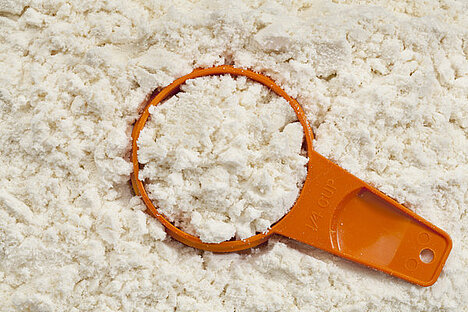Sweet whey powder

The benefits of sweet whey powder for dogs
Sweet whey powder can support the digestion and immune system of dogs, as it contains probiotic bacteria and enzymes that promote intestinal flora. It can also help to regulate the pH of the stomach and prevent heartburn. Sweet whey powder is also a good source of protein for dogs, strengthening muscles and bones. It can also help with skin and coat problems as it contains zinc and biotin, which are important for cell regeneration.
The disadvantages of sweet whey powder for dogs
Sweet whey powder is not suitable for all dogs as it contains lactose, which some dogs do not tolerate well. Lactose intolerance can lead to diarrhea, bloating and abdominal pain. You should therefore always consult a vet before giving your dog sweet whey powder. You should also make sure that the sweet whey powder does not contain any artificial additives such as sugar or flavorings, which can be harmful to dogs.
How do you give your dog sweet whey powder?
Sweet whey powder can be given to your dog either pure or mixed with water. The dosage depends on the dog's weight and health, but a general recommendation is about one teaspoon per 10 kilograms of body weight per day. However, you should always start slowly and observe the dog's reaction. If the dog shows no negative symptoms, you can slowly increase the amount.
Sweet whey powder is a natural product that can have many health benefits for dogs. It can improve digestion, the immune system, muscles, bones, skin and coat. However, it is not suitable for all dogs as it contains lactose, which can lead to intolerances.
If you notice any signs of hypersensitivity or poisoning in your dog, you should see your vet immediately. We are not a substitute for a vet, but we try to be as accurate as possible. Every dog reacts differently and we recommend you get a second opinion or consult your vet if in doubt.
Stay healthy and take good care of your four-legged friend!😊